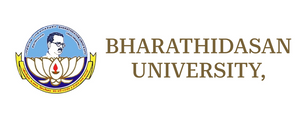MBA Online : An Overview
An online MBA program is a flexible Master of Business Administration course delivered entirely online. These programs cater to working professionals and students who cannot commit to on-campus classes due to personal or professional reasons. They are also beneficial for entrepreneurs and businesspersons seeking formal higher education while managing their ventures.
Typically, an online MBA program lasts two years or 24 months, divided into four semesters of six months each. However, many top online MBA schools offer accelerated programs for those who wish to fast-track their education.
The instruction for online MBA is primarily digital, providing a 100% remote learning experience. Students can benefit from self-paced learning environments, allowing them to complete the course at their own speed.
As remote education gains popularity, many leading universities and colleges in India offer various MBA programs in addition to online MBA, such as:
- Part-time MBA (less intensive and spread over a longer duration)
- 1-year MBA or Executive MBA (for working executives and senior professionals)
- Dual specializations (allowing students to specialize in two areas, such as finance and marketing or HR and project management)
Eligibility Criteria and Key Highlights : Online MBA
1. Educational Qualifications:
- A bachelor's degree in any discipline from a recognized university.
- Some institutions may require a minimum percentage or GPA (often around 50% or higher).
2. Work Experience:
- Many programs prefer or require applicants to have relevant work experience (typically 1-3 years). Executive MBA programs often require more extensive experience.
3. Entrance Exams:
- Some institutions may require scores from standardized tests like the GMAT, GRE, or relevant national-level entrance exams.
- Others may have their own entrance exams or admit students based on merit.
4. Language Proficiency:
- Proficiency in English is often required, particularly for international students. This may be demonstrated through standardized tests like IELTS or TOEFL.
5. Additional Requirements:
- Letters of recommendation, a statement of purpose (SOP), and a resume may be required.
- Some programs might conduct interviews as part of the admission process.





